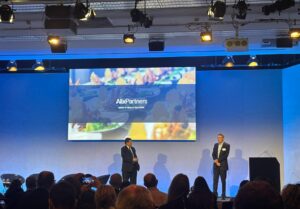At many UK universities, the campus café has long been more than just a place to grab a flat white or a sandwich. It’s a social anchor – a place to connect, socialise, collaborate, or take five minutes to reset. Historically, catering outlets have been opened to align with the evolving needs of the campus: a new building meant a new café; a new faculty hub called for its own refreshment space. It was understood that these outlets contributed to the vibrancy and community of university life.
But in 2025, that approach is under scrutiny.
The cost of experience
Escalating inflation, particularly in labour, has pushed many of these break-even or marginally profitable outlets into loss-making territory. At the same time, expectations for the student experience are higher than ever – with universities rightly championing the value of food and drink in student satisfaction, retention, and wellbeing.
This puts university catering teams in a difficult bind. As Mark Kassapian, Managing Director at Litmus Retail, notes: “It’s about reconciling two truths – yes, hospitality enriches student life, but that doesn’t exempt it from financial gravity. We need to evolve how and where we deliver the experience, not just replicate it building-by-building.”
So, where is the line between delivering an exceptional student experience and maintaining financial sustainability?
Fewer units, greater efficiency?
One strategy gaining traction is consolidation. Operating fewer outlets reduces capital investment, maintenance, and labour overheads. It allows teams to channel more sales through fewer, higher-performing sites, often with shorter operating hours – leading to leaner, more efficient operations.
But this comes with trade-offs.
Reducing opening hours or the number of outlets can limit convenience and reduce the diversity of the offer, ultimately impacting the student experience that universities have worked hard to cultivate. So, any move to consolidate must be carefully considered.
Key factors to consider
At Litmus, we’ve worked with many universities across the UK to help define this balance. Before making changes, it’s essential that institutions weigh several critical factors including:
- Location: How close is the nearest alternative outlet? What’s the pain factor for students and staff to access it? A café in a remote science block may serve a more critical role than one a two-minute walk from a central hub.
- Revenue vs. cost: If an outlet closes, will the lost revenue outweigh the cost savings? Consider whether sales will migrate to another unit or disappear altogether.
- Catering as anchor: Is the unit helping to draw footfall into a key building like the library, student centre or main quad? If so, its role may be more strategic than purely financial.
- Offer replication: Can the food or drink offer be replicated elsewhere on campus to preserve choice and variety? Could key menu items migrate to another outlet?
- Pop-ups and flexibility: Introducing mobile or pop-up units can maintain presence without full-time cost. These are especially effective during sports events, graduation, open days or exam seasons.
- Timetabling alignment: Could lecture scheduling and catering provision be better aligned? If teaching is concentrated in specific zones or times, catering can flex accordingly.
Reimagining the model
We recently completed a ‘Business Models in Higher Education Catering’ report which looked at different models and trends across universities. What’s clear is that simply cutting costs isn’t enough. Universities must think creatively about how to deliver food services that are financially viable, operationally lean, and still offer students a meaningful, enjoyable experience. This could mean a mix of consolidated outlets, pop-ups, mobile options, and better data-informed decision-making on where (and when) to serve.
The future student experience may not rely on one café per building, but rather, a smarter, more connected offer that still hits the mark.
To hear more about how we could help you balance commercial reality and campus life, contact us here.
The Litmus team











